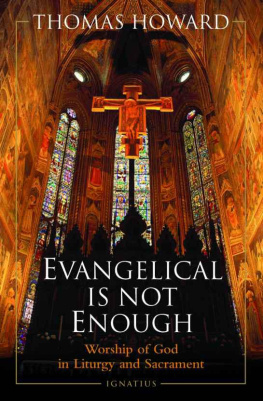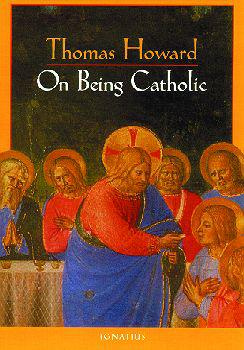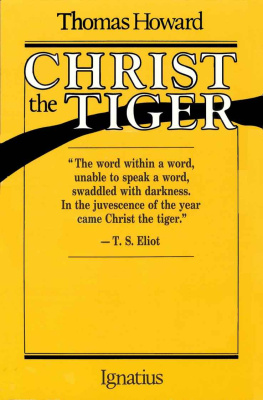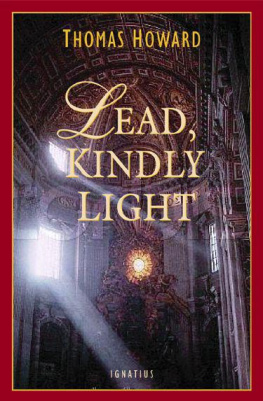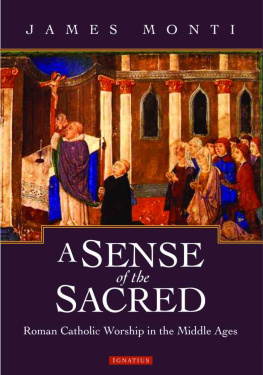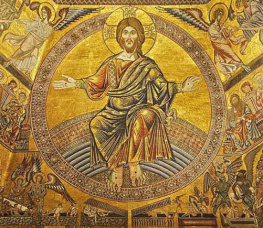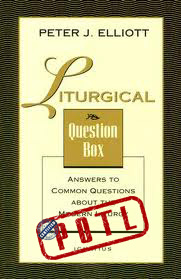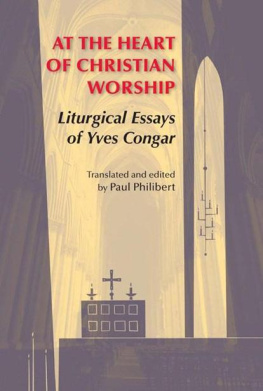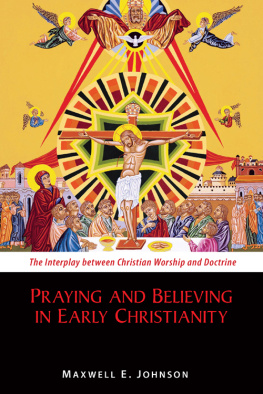Evangelical
Is Not Enough
Thomas Howard
Evangelical
Is Not Enough
Worship of God in
Liturgy and Sacrament
IGNATIUS PRESS SAN FRANCISCO
First published by Thomas Nelson, inc.
Nashville, Tennessee
Cover photograph:
Santa Croce Church
Florence, Italy
Jim Zuckerman / Corbis
Cover design by Roxanne Mei Lum
1984 by Thomas Howard
All rights reserved
ISBN 978-0-89870-221-7
Library of Congress catalogue number 88-81820
Printed in the United States of America
Contents
Dedication
Dedications are ordinarily made to one person, sometimes two. I would like to break with that convention in this one instance and dedicate my book to the following multitude. Some of them would not at all want their names associated with a single one of the ideas expressed in the book, and I absolve them entirely. Remember, this is only a dedication, not a board of reference.
There are some mightily strange bedfellows here, but all share at least two things. First, all of them confess our Lord Jesus Christ with a clarity and fidelity that is more than heartening to a fellow-Christian, and all are serious about being faithful to the ancient Faith, which He committed to His apostles and which has been witnessed to by those apostles, and by martyrs, confessors, doctors, widows, virgins, and all the great company of the faithful for two thousand years now. Second, whether they themselves know it or not (and many of them have never heard of me, and some are dead), I owe each one some debt in the Faith.
I would like, then, to make this dedication:
To John Henry Newman, Ronald Knox, Maurice Zundel, and Romano Guardini: my Roman Catholic tutors.
To Alexander Schmemann, Kallistos Ware, and Georges Florovsky: my tutors in holy Orthodoxy.
To Lancelot Andrewes, George Herbert, Gregory Dix, T. S. Eliot, C. S. Lewis, J. I. Packer, John Stott, Mark Dyer, and Jeffrey Steenson: Anglican witnesses to the Faith.
To my former students James Gurley, Harold Fickett, John Skillen, Michael Barwell, and Dan Ohman: they fill me with hope.
To Philip E. Howard, Jr., Joseph Bayly, David Wells, Gerald Hawthorne, and the missionaries of the China Inland Mission: these embody the evangelical integrity I honor.
To the bishops of the Evangelical Orthodox Church: At enormous cost they have staked everything for the sake of the one, holy, catholic, and apostolic Church for which I pray daily.
Evangelical
Is Not Enough
Protestant and Evangelical:
Understanding Ourselves
My debt to Protestantism is incalculable. The Reformation was my tutor in the Faith. Since my pilgrimage has led me to ancient forms of Christian worship and discipline that find little place in ordinary Reformational piety and vision, I find myself mulling over just what Protestantism might be, in the effort to chart my own itinerary.
Who Are We?
What, exactly, is Protestantisms genius? Where is its center of gravity? Where does it stand in relation to the whole Church?
My own nurture took place in a particularly earnest and, to my mind, admirable sector of Protestantism, namely, evangelicalism. I have never come upon Christian believers of any ilk who exhibit more clearly than do the evangelicals the simplicity, earnestness, and purity of heart that the gospel asks of us.
The word evangelical is an ancient and noble one, but it has become somewhat rickety. It has too many meanings. In our own time it sprang into popular use with the presidency of Jimmy Carter, when anyone who claimed to be born again seemed to fall into the category. The press often used the word as a synonym for middle-class religion. On the other hand, there are the historic uses of the word. Originally it simply referred to the gospel. Late in time it referred to the union of Lutheran and Reformed churches in Prussia, or to European Protestantism generally, or to the movement in the Church of England that stressed personal conversion by faith in Christs atoning death. Names like George Whitefield and Charles Simeon loom large in this last connection.
The evangelicalism of which I speak differs slightly from what one finds in Southern Baptist, Wesleyan, Pentecostal, or Missouri Synod Lutheran circles, even though all of these may lay claim to being evangelical in some sense.
I can best identify my own milieu by listing the following as touchstones: Billy Graham; the Scofield Reference Bible; Moody Bible Institute; Wheaton College; The China Inland Mission; The Sunday School Times ; Wycliffe Bible Translators; Youth For Christ; Young Life; Inter-Varsity Christian Fellowship; Campus Crusade for Christ; The Navigators; Gordon-Conwell, Fuller, and Dallas Theological Seminaries; and all the evangelical publishing houses such as Word, Fleming H. Revell, and Tyndale, as well as the journals Christianity Today and Eternity .
Everyone in my world could speak these names trippingly on the tongue, even though there were many internecine differences. The theologians at Fuller Seminary, for example, would not espouse the dispensationalist method of interpreting the Bible taught at Dallas Seminary and plotted out in the Scofield Bible.
A reader scanning this list will note that no church is mentioned. This is not without significance. While many small evangelical denominations have been formed in the last eighty years, the characteristic evangelical presence often lies in para-church organizations or in independent local congregations with names like Grace Chapel or Calvary Baptist Church. It is difficult for Christians with strong denominational loyalties, especially those with ethnic roots like the Swedish Baptists, the Dutch Reformed, the German Lutherans, the Scottish Presbyterians, or the Plymouth Brethren, to find the axis of evangelicalism. No city constitutes a Holy See, for exampleno Zurich, Geneva, Amsterdam, Edinburgh, or Prague. Nor is there any single founding fatherno Jan Hus, Menno Simon, Alexander Campbell, John Calvin, Oecolampadius, or J. N. Darby. The words interdenominational and nondenominational are words of good omen, not bad omen, in this environment. We attached almost no importance to ancient historic credentials.
At bottom, though, one cannot distinguish evangelical teaching from traditional Christian orthodoxy. We could be counted on to embrace wholeheartedly all that is spelled out in the ancient creeds of the Church. There is nothing in the Apostles, Nicene, Chalcedonian, or Athanasian creeds that we would have jibbed at. We were stoutly among those who with Athanasius, hold the Catholic Faith... whole and undefiled. In this sense we would have been more at home in the company of apostles, fathers, doctors, confessors, and the ancient tradition of catholic orthodoxy than among modern churchmen who look on the gospel as being shot through with legendary matter.
But there is something peculiar in this way of talking about evangelicalism. Our imagination did not run to creeds, fathers, doctors, tradition, or catholic orthodoxy. When it came to anchoring our faith, we cited texts from the New Testament and nothing else. We never said, The Church teaches so and so. We were not thinking of the ancient Faith or of a long lineage of the faithful when we spoke of our beliefs. Yet there is perhaps nowhere in the world where ancient Christian belief is professed more candidly and vigorously than in evangelicalism.
Here, I think, lies the irony that has attended my pilgrimage. Have I moved or have I not?
I have certainly left nothing behind. I was taught, for example, that Jesus was born of a virgin. This meant that He did not have a human father. At the Annunciation the Holy Ghost brought about what ordinarily occurs at human conception. Something gynecological occurred. Evangelicalism teaches this; ancient catholic orthodoxy teaches this.

